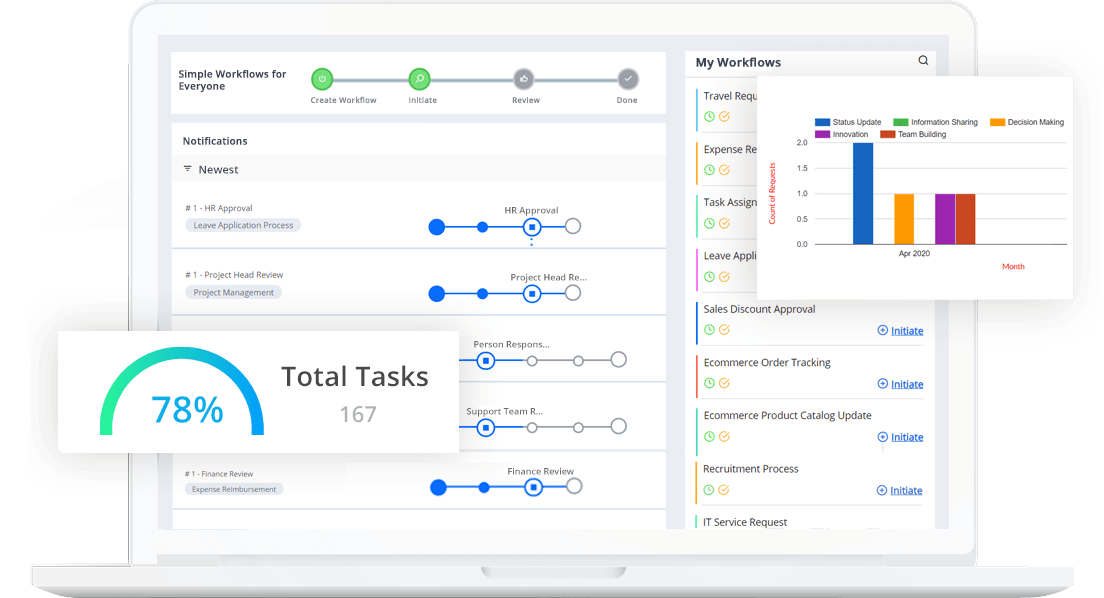Understanding the Synergy of Cloud and Digital Transformation

Key takeaways
- Cloud and digital transformation are reshaping industries by enabling scalability, flexibility, and innovation.
- Cloud computing and digital transformation provide businesses with cost-effective solutions to modernize operations.
- Digital transformation and cloud migration enhance business agility, security, and data-driven decision-making.
- Organizations leveraging digital transformation and cloud computing improve customer experiences and operational efficiency.
- Digital transformation cloud adoption is accelerating across industries due to its potential to drive productivity and innovation.
- Cloud-based technologies are critical in ensuring business continuity, remote work efficiency, and future-ready infrastructure.
What is Digital Transformation?
Digital transformation is the strategic adoption of digital technologies to enhance business processes, improve customer experiences, and drive innovation. It goes beyond simple digitization by integrating technology into every facet of an organization, fostering a culture of continuous improvement and agility. This blog explores digital transformation and cloud technology in detail, the importance of digital transformation, and the synergy between digital transformation and cloud technology
Digital transformation involves automating processes, leveraging data analytics, improving customer engagement, and enhancing cybersecurity. Businesses that adopt digital transformation gain a competitive advantage by streamlining operations, reducing costs, and responding swiftly to market changes.
Table of Contents
Importance of Digital Transformation
Enhances Operational Efficiency
Digital transformation enables businesses to streamline their operations by automating repetitive and manual tasks. Organizations that implement AI-powered workflow automation tools and cloud-based solutions experience a significant reduction in inefficiencies.
Automation optimizes workflows, reduces errors, and increases productivity, allowing employees to focus on high-value tasks rather than administrative burdens. Moreover, integrating digital tools such as ERP (Enterprise Resource Planning) and CRM (Customer Relationship Management) systems ensures seamless communication and operational efficiency across departments.
Improves Customer Experience
Modern customers demand personalized and seamless interactions with businesses. Digital transformation enables organizations to gather, analyze, and utilize customer data to create tailored experiences. AI-driven chatbots, recommendation engines, and automated customer support solutions enhance engagement and improve response times. Cloud-based CRM platforms help companies track customer interactions and provide proactive solutions, thereby increasing customer satisfaction and brand loyalty.
Enables Data-Driven Decision-Making
Data is at the core of digital transformation. Businesses leveraging big data analytics, machine learning, and AI can make more informed and strategic decisions. Digital tools collect and analyze real-time data, helping businesses identify market trends, customer preferences, and operational inefficiencies. By integrating predictive analytics, companies can anticipate challenges and optimize strategies to remain competitive in the market.
Strengthens Cybersecurity
As businesses become more digitally interconnected, cybersecurity threats also rise. Digital transformation incorporates advanced security measures, such as multi-factor authentication, end-to-end encryption, AI-driven threat detection, and automated compliance monitoring. Cloud security solutions provide continuous monitoring, data encryption, and disaster recovery options, ensuring that businesses remain resilient against cyber threats and data breaches.
Supports Remote Work and Collaboration
The rise of remote work has made digital transformation an essential business strategy. Cloud-based productivity and collaboration tools such as Google Workspace, Microsoft 365, and project management platforms facilitate seamless remote working environments. Employees can access business applications securely from any location, enhancing communication and productivity. Digital transformation enables real-time file sharing, virtual meetings, and remote access to company databases, making remote teams more efficient.
Ensures Business Continuity
Digital transformation enhances business resilience by ensuring that organizations can quickly adapt to market disruptions and operational challenges. Cloud-based solutions provide automated backups, real-time monitoring, and disaster recovery systems, minimizing downtime and data loss during crises. Whether dealing with cybersecurity threats, supply chain disruptions, or global events like pandemics, businesses with robust digital strategies can sustain operations with minimal disruption.
Drives Innovation and Competitive Advantage
Businesses that embrace digital transformation stay ahead of the competition by fostering a culture of innovation. The adoption of cutting-edge technologies such as AI, IoT, blockchain, and edge computing allows companies to develop new products, services, and business models. Digital transformation accelerates research and development, enabling faster go-to-market strategies and improved customer engagement.
Reduces Operational Costs
By leveraging cloud computing and automation, businesses can reduce infrastructure costs, eliminate redundant tasks, and optimize workforce management. Cloud-based applications allow companies to scale resources efficiently, reducing the need for expensive on-premises hardware. The shift to digital solutions lowers maintenance costs and improves ROI, making operations more cost-effective.
Improves Regulatory Compliance
Regulatory compliance is a critical aspect of business operations, particularly in industries like finance, healthcare, and data-sensitive sectors. Digital transformation enables organizations to automate compliance reporting, implement AI-driven audits, and use secure cloud storage solutions to meet regulatory requirements. Automated compliance ensures adherence to data privacy laws and industry regulations while reducing the risk of human error.
By embracing digital transformation, organizations not only enhance efficiency and agility but also future-proof their businesses against evolving market trends. The integration of digital solutions fosters growth, strengthens cybersecurity, and improves overall business performance, ensuring sustainable success in an increasingly digital-first world.
Regional Use Cases of Digital Transformation
North America
- Leading the digital transformation revolution with AI, cloud computing, and IoT adoption.
- Large enterprises and SMEs leverage digital transformation to drive innovation and customer-centric solutions.
Europe
- High focus on regulatory compliance and cybersecurity in cloud migration.
- Digital banking, e-commerce, and healthcare industries are thriving due to cloud-enabled solutions.
Asia-Pacific
- Rapid cloud adoption is fueled by tech-driven economies such as India, China, and Japan.
- Government-backed digital initiatives supporting cloud migration and smart city projects.
Middle East & Africa
- Increasing cloud-based infrastructure investments, particularly in fintech and telecommunications.
- Smart city developments and AI-powered solutions driving regional transformation.
Brief on Cloud Technology
Cloud technology is the foundation of digital transformation, offering on-demand access to computing resources such as servers, storage, databases, and software. Cloud computing enables businesses to scale operations efficiently, reduce IT infrastructure costs, and access data securely from anywhere.
Cloud technology eliminates the need for physical servers and IT infrastructure, allowing organizations to store and manage data in virtual environments. This provides flexibility, enhances performance, and ensures seamless accessibility to digital tools and applications from any location. Cloud adoption is a key enabler of digital transformation, empowering businesses to optimize processes, increase innovation, and drive efficiency.
Key Benefits of Cloud Technology
- Cost Reduction – Reduces the capital and operational expenditure by eliminating the need for on-premises hardware.
- Scalability & Flexibility – Businesses can scale resources up or down based on demand, ensuring cost efficiency.
- Security & Compliance – Cloud providers offer advanced security protocols, encryption, and compliance certifications to protect sensitive data.
- Collaboration & Remote Access – Employees can work efficiently from any location using cloud-hosted applications.
- Business Continuity – Cloud computing ensures disaster recovery, automated backups, and minimal downtime in case of disruptions.
Types of Cloud Computing
- Public Cloud – Hosted by third-party providers and accessible via the Internet. Ideal for businesses looking for cost-effective, scalable solutions.
- Private Cloud – Dedicated infrastructure for a single organization, enhancing security and control. Often used by enterprises with strict regulatory requirements.
- Hybrid Cloud – A mix of public and private clouds, providing flexibility and scalability. Organizations can run sensitive workloads on a private cloud while utilizing the public cloud for other tasks.
- Multi-Cloud – Utilization of multiple cloud providers to prevent dependency on a single vendor. This approach enhances redundancy, optimizes costs, and improves service availability.
Cloud Deployment Models
- Software as a Service (SaaS) – Delivers software applications over the internet, eliminating the need for installations and updates.
- Platform as a Service (PaaS) – Provides cloud environments for developers to build, test, and deploy applications efficiently.
- Infrastructure as a Service (IaaS) – Offers virtualized computing resources like servers, networking, and storage on a pay-as-you-go basis.
Cloud computing allows businesses to innovate faster, collaborate more effectively, and build resilient infrastructures that support digital transformation efforts. The shift towards cloud technology is driving automation, data-driven decision-making, and AI integration, making it a crucial pillar of modern enterprise success.
How Cloud Technology Enables Digital Transformation
Digital transformation and cloud technology have a synergistic relationship. Cloud technology enables smooth digital transformation in the following ways –
- Scalability & Flexibility – Businesses can adjust resources on demand without heavy upfront investments.
- Cost-Efficiency – Pay-as-you-go models reduce infrastructure costs and optimize IT spending.
- Enhanced Collaboration – Cloud-based tools enable seamless communication and teamwork across remote locations.
- Advanced Security & Compliance – Cloud providers offer built-in security features to protect sensitive business data.
- AI & Analytics Integration – Cloud computing allows businesses to leverage machine learning and big data analytics for smarter decision-making.
5 Compelling Reasons to Adopt Cloud Technology
Why should you adopt cloud technology for digital transformation? Here are 5 reasons why –
- Improved Business Agility – Enables organizations to respond quickly to market changes and evolving customer needs.
- Reduced IT Complexity – Minimizes reliance on on-premises hardware and simplifies infrastructure management.
- Seamless Remote Work Capabilities – Cloud-based solutions support remote work environments with minimal disruptions.
- Data Backup & Disaster Recovery – Ensures business continuity with automated backups and real-time recovery options.
- Competitive Advantage – Businesses leveraging cloud computing stay ahead with faster innovation cycles and optimized workflows.
End-to-end workflow automation
Build fully-customizable, no code process workflows in a jiffy.
Advantages of Adopting Cloud Technology
The adoption of cloud technology provides several advantages to businesses. From enabling smooth digital transformation to lowering costs – there are several advantages to adopting cloud technology.
- Increased Productivity – Automating processes and enabling remote work enhance workforce efficiency.
- Cost Savings – Eliminating physical servers and reducing maintenance costs lowers overall expenses.
- Enhanced Security – Advanced encryption, multi-factor authentication, and compliance tools safeguard business data.
- High Performance & Speed – Cloud infrastructure ensures fast processing, storage, and seamless scalability.
- Sustainability & Energy Efficiency – Cloud adoption minimizes carbon footprints by reducing hardware reliance.
Take the Next Step Towards Digital Transformation with Cflow
Cflow is a cloud-based workflow automation solution that helps businesses streamline their digital transformation efforts. By automating approval processes, optimizing workflows, and integrating cloud technology, Cflow enhances productivity, efficiency, and business agility.
Why Choose Cflow for Digital Transformation?
- No-Code Workflow Automation – Cflow allows businesses to create and deploy automated workflows without any coding expertise. This feature is ideal for organizations looking to digitize manual processes with minimal technical resources.
- Seamless Cloud Integration – Cflow integrates effortlessly with cloud storage, CRM systems, collaboration tools, and enterprise applications, ensuring smooth workflow execution and data synchronization across platforms.
- Enhanced Data Security – Security is a priority in digital transformation. Cflow ensures compliance with industry standards by offering built-in encryption, multi-factor authentication, and access control mechanisms to protect sensitive business information.
- Scalable & Customizable Solutions – Businesses evolve, and so should their workflows. Cflow provides scalable and customizable workflow solutions, allowing organizations to adapt automation processes as business needs change.
- Improved Collaboration & Visibility – With real-time tracking and dashboard insights, Cflow enhances collaboration among teams by providing a clear view of process statuses and approvals. This ensures transparency and accelerates decision-making.
- Cost Savings & ROI – Automating workflows with Cflow reduces operational inefficiencies, eliminates paperwork, and enhances employee productivity, leading to significant cost savings and improved return on investment (ROI).
- Business Continuity & Compliance – Cflow’s cloud-based infrastructure ensures that businesses can operate seamlessly, even during disruptions. With automatic backups and audit trails, compliance with industry regulations is simplified.
By adopting Cflow, businesses can accelerate their cloud and digital transformation journeys, improve workflow efficiency, and achieve greater operational resilience. Whether you are a small business or an enterprise, Cflow provides the right tools to help you automate, optimize, and transform your business processes.
Final Thoughts
Cloud technology and digital transformation are revolutionizing industries, enabling organizations to enhance efficiency, improve security, and drive innovation. By leveraging cloud computing, businesses can scale operations, reduce costs, and adapt quickly to changing market demands. Digital transformation is no longer optional—it is essential for staying competitive and future-proofing business strategies.
Organizations that embrace the cloud will benefit from improved collaboration, seamless remote work capabilities, and stronger data-driven decision-making. Investing in cloud-powered digital transformation today ensures long-term growth, resilience, and a customer-centric approach to business success. Take the next step in your digital transformation journey with Cflow. Automate workflows, improve collaboration and achieve business excellence with cloud technology.
FAQs
1. How does cloud computing support digital transformation?
Cloud computing enables businesses to adopt scalable, cost-effective, and agile digital solutions that enhance efficiency and innovation.
2. What is the role of cloud migration in digital transformation?
Cloud migration helps organizations move legacy systems to modern, cloud-based infrastructure, improving performance and reducing costs.
3. Why is cloud computing essential for business growth?
Cloud computing provides scalability, security, and advanced analytics, helping businesses innovate and adapt to market trends.
4. How does cloud adoption enhance cybersecurity?
Cloud providers implement advanced security measures like encryption, AI-driven threat detection, and access controls to protect business data.
5. What industries benefit the most from cloud and digital transformation?
Industries like finance, healthcare, e-commerce, manufacturing, and telecommunications see the greatest impact from cloud-driven digital transformation.
What should you do next?
Thanks for reading till the end. Here are 3 ways we can help you automate your business:

Do better workflow automation with Cflow
Create workflows with multiple steps, parallel reviewals. auto approvals, public forms, etc. to save time and cost.

Talk to a workflow expert
Get a 30-min. free consultation with our Workflow expert to optimize your daily tasks.

Get smarter with our workflow resources
Explore our workflow automation blogs, ebooks, and other resources to master workflow automation.
What would you like to do next?
Automate your workflows with our Cflow experts.



